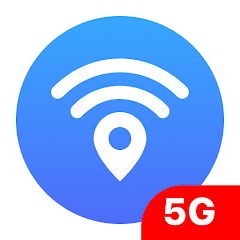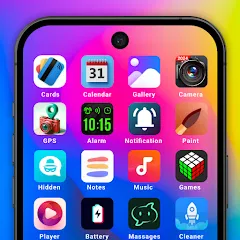Automatic Call Recorder
About this app
If one is interested in automatic call recorder applications, this discussion will delve into the essential features, functionalities, and advantages associated with these tools.
Additionally, the merits and demerits of using automatic call recorder apps will be addressed, along with guidance on selecting the most suitable option based on individual requirements.
Furthermore, instructions on utilizing an automatic call recorder app effectively, along with considerations on privacy and legal implications, will also be provided.
Continued reading will offer more insights into this valuable utility.
What is an Automatic Call Recorder App?
An Automatic Call Recorder App is a mobile application specifically engineered to swiftly and efficiently record phone conversations. These applications provide users with the convenience of automatically capturing and storing their calls for future reference or archival purposes.
The operational framework of such apps is predicated on seamless integration with the phone's call system in order to record both incoming and outgoing calls without necessitating manual intervention. This streamlined process ensures that critical conversations are consistently archived and readily accessible.
The user-friendly interface of these apps enhances the call recording experience by facilitating easy access to recorded calls, offering playback options, and enabling users to categorize or label recordings for improved organization. Given the importance of call recording in various spheres such as business, personal matters, or legal contexts, Automatic Call Recorder Apps have evolved into critical tools for numerous smartphone users.
Features of Automatic Call Recorder Apps
Automatic Call Recorder Apps are equipped with a wide array of features aimed at enhancing the call recording experience. These features encompass a user-friendly interface, advanced recording capabilities, comprehensive call logs, convenient access to saved recordings, and diverse playback options.
Key Functions and Benefits
One of the primary functions of Automatic Call Recorder Apps is to provide users with the ability to select the file format for recordings and effortlessly store them in the cloud for convenient access and backup purposes. These applications also offer privacy settings that allow users to manage recording permissions and call tracking features for more organized call management.
Users have the option to choose from a variety of file formats, such as MP3 or WAV, ensuring compatibility with a range of devices and meeting diverse recording needs. The integration with cloud storage services like Google Drive or Dropbox allows users to securely store and retrieve recordings from any location at any time.
The privacy settings embedded in these apps enable users to determine which calls should be recorded, thereby ensuring confidentiality and adherence to regulatory requirements. Additionally, the call tracking capabilities provided by these applications offer valuable insights into call duration and frequency, assisting users in prioritizing and categorizing calls for more efficient follow-up and enhanced communication management.
Pros and Cons of Using Automatic Call Recorder Apps
Although Automatic Call Recorder Apps provide several benefits, including convenience, accurate call transcripts, and enhanced call analysis, they also present certain limitations, such as legal compliance challenges and storage management issues.
Advantages and Disadvantages
The utilization of Automatic Call Recorder Apps presents several benefits, including enhanced record-keeping practices, improved call analysis capabilities, and heightened data protection measures. Conversely, drawbacks associated with these apps may encompass complexities in legal compliance, adherence to recording regulations, and potential privacy considerations.
Automatic Call Recorder Apps provide organizations with the capacity to effectively document conversations for future reference, thereby facilitating enhanced customer service delivery and efficient dispute resolution processes. By leveraging these applications, businesses can establish a comprehensive repository of critical dialogues, thereby fostering more knowledge-based decision making practices.
However, challenges arise in ensuring adherence to diverse call recording regulations prevailing across different geographical regions, thereby exposing enterprises to legal uncertainties and regulatory impediments. Upholding the accuracy of call recordings and safeguarding the confidentiality of sensitive information emerges as a pivotal issue for organizations leveraging such applications.
Choosing the Right Automatic Call Recorder App
Choosing the most appropriate Automatic Call Recorder App necessitates the evaluation of several factors, including recording quality, storage options, compatibility with your device, and user reviews. Conducting a thorough comparison of various apps based on their features, user ratings, and recommendations can facilitate the process of making a well-informed decision.
Factors to Consider
When selecting an Automatic Call Recorder App, it is essential to take into account factors such as device compatibility, user experience, app ratings, reviews from other users, and download statistics. These criteria can assist in assessing the app's dependability and performance on the specific smartphone being used.
Device compatibility ensures that the app functions seamlessly on the particular model of smartphone in use, while user experience is crucial in determining the app's ease of use and overall functionality. Reviewing app ratings and feedback offers valuable insights into the experiences of other users, shedding light on the app's overall quality and any potential shortcomings. Analyzing download statistics can provide an indication of the app's popularity and the level of trust and reliance placed upon it by users for their call recording requirements.
How to Use an Automatic Call Recorder App
Efficiently leveraging an Automatic Call Recorder App entails a comprehensive understanding of features such as:
- call transcriptions
- detailed call history tracking
- monitoring call duration
- ensuring timestamp accuracy
- effectively managing recording notifications
to remain informed about new recordings.
Step-by-Step Guide
- Enable automatic recording to ensure that all calls are seamlessly captured without any manual intervention.
- Utilize manual recording for specific calls by activating the record button during the call to select conversations for preservation.
- Monitor call activities to analyze call durations, frequencies, and caller identities effectively.
- Ensure stringent security measures, such as password protection or encryption, are in place to safeguard recorded data from unauthorized access.
- Manage recording permissions meticulously by regularly auditing and adjusting permissions to comply with privacy regulations and permissions for each contact or group.
Privacy and Legal Considerations
It is imperative to have a comprehensive understanding of the privacy and legal considerations associated with call recording when utilizing Automatic Call Recorder Apps. Users are required to adhere to recording laws, ensure compliance with data protection regulations, uphold proper record-keeping protocols, and investigate secure call recording solutions to protect sensitive information.
Understanding Recording Laws and Protecting Personal Information
It is imperative to take into consideration industry standards, regulatory requirements, and optimal practices when utilizing Automatic Call Recorder Apps to ensure adherence to legal mandates and safeguard personal data. Conforming to these protocols fosters ethical and secure call recording procedures.
By adhering to industry standards, individuals and entities not only ensure legal conformity but also lay the groundwork for building trust with their clientele. Recording regulations provide a structural framework that guarantees openness and answerability in call recording processes. Implementing best practices in call recording not only protects confidential information but also fosters a culture of accountability and honesty within the sector. Embracing these conventions serves to enhance the overall quality and dependability of call recording operations, ultimately leading to enhanced customer satisfaction and operational effectiveness.
Related Apps
-
Samsung One UI HomeGETTools and Productivity
-
Google Play Store APKGETTools and Productivity
-
Launcher and ThemesGETTools and Productivity
-
Hidden devices detectorGETTools and Productivity


















